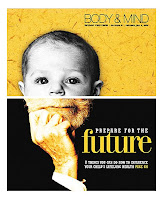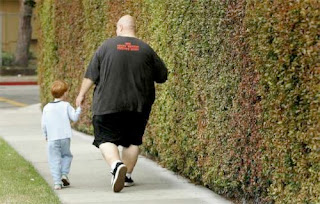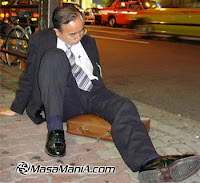 In his book, Ageless Body, Timeless Mind, Dr. Deepak Chopra discusses a study done on longevity where the factors leading to longer life were outlined. One of those factors was one’s self-perception of health. That is, both men and women who believed that their health was better at the time of the study than it was fifteen years earlier tended to live longer than those who thought their health was worse.
In his book, Ageless Body, Timeless Mind, Dr. Deepak Chopra discusses a study done on longevity where the factors leading to longer life were outlined. One of those factors was one’s self-perception of health. That is, both men and women who believed that their health was better at the time of the study than it was fifteen years earlier tended to live longer than those who thought their health was worse.
This concept, in my opinion, is crucial to achieving optimal health, wellness and longevity. I also understand that some people might find it ambiguous. One might say, “People who are healthier will naturally see themselves as healthier–this proves nothing.” That’s a very real possibility from a skeptical point of view; however, I am certain that our perceptions color our reality. What I mean by this is, if you see yourself as financially well off, you are. It’s all relative, isn’t it? There will always be somebody who considers you richer than they are, and others who consider you less so. What difference does their viewpoint make? Who would be right anyway? All that matters is what you see.
 This is true with your health, too. If you see yourself as healthy, your body will first respond energetically; and if you are wise enough to carry out the right activities–health enhancing behaviors–then you physical body will respond in kind. I know that this sounds rather obvious, but there is a subtle, yet powerful, component that makes it all reality–your state of mind!
This is true with your health, too. If you see yourself as healthy, your body will first respond energetically; and if you are wise enough to carry out the right activities–health enhancing behaviors–then you physical body will respond in kind. I know that this sounds rather obvious, but there is a subtle, yet powerful, component that makes it all reality–your state of mind!
 Think about this for a moment: If you don’t believe in your ability to experience great health, do you think you’ll realize it in actuality? What the hell can you achieve without believing in it first? Space travel? High-speed internet? Wireless communication? Seven Tour de France wins? Billions of dollars? An African American U.S. President? What?
Think about this for a moment: If you don’t believe in your ability to experience great health, do you think you’ll realize it in actuality? What the hell can you achieve without believing in it first? Space travel? High-speed internet? Wireless communication? Seven Tour de France wins? Billions of dollars? An African American U.S. President? What?
It’s the same with health. And it’s the message I most want you to walk away with from this blog, and all my writings for that matter. Your body, the human body, is capable of incredible things, particularly healing. We can accomplish miracles, but first we have to believe. You want to be a skeptic? Go ahead, be my guest. But you’ll achieve nothing that way; you can count on that. If you have the desire to achieve optimal health, and all the many benefits that come along with it, then you’ve first gotta see yourself as healthy. You’ll also have to do healthy things, but I’ll never stop telling you what those are, so keep reading this blog.
Note: If you want more health info, check out my experts page at Bizmoms.com!














